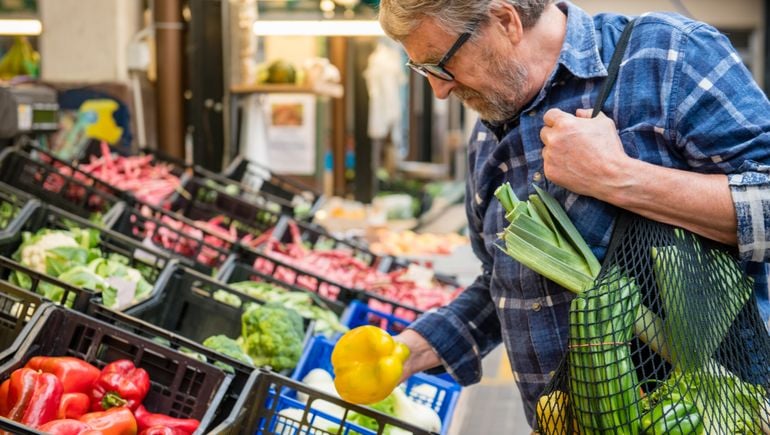
Dive Brief:
- A majority (54%) of consumers are willing to take on the responsibility of helping the environment through their food purchases, according to packaging giant TetraPak’s 2023 Nutrition Index. This could include tradeoffs like switching to plant-based foods and alternative proteins, the report said.
- While nearly 49% of respondents said they are financially struggling, only 17% indicated a desire to sacrifice food and beverages that are environmentally friendly, organic or healthier based on their higher cost.
- Consumers are also increasingly associating healthy eating with sustainability. Half of respondents indicated that nutritious food is also more sustainable for the planet, and 65% believe that environmental factors cause negative health impacts.
Dive Insight:
As more people consider consider the environmental consequences of their food and beverage purchases, they simultaneously value health and wellness more than ever.
At the same time, large CPG companies are revamping their supply chains to meet their desired environmental goals.
A group of 170 food companies — including Nestlé, Danone, PepsiCo, Unilever and Bayer — committed to a framework this month to implement regenerative agriculture practices within their supply chains. The SAI Platform said it focuses on outcome-based approaches to boost soil health while also supporting the business development of farmers. It comes after criticism from environmental groups about failed promises and a lack of consistency about the term “regenerative agriculture.”
Despite the desire for environmentally friendly and healthier foods, consumers are still aware of the threat food insecurity poses. Two in five respondents to TetraPak’s survey (42%) said they are concerned they won’t be able to purchase the food and beverage items they want in the near future.
The use of technology to solve the food industry’s sustainability woes saw broad support within the group TetraPak surveyed, with 62% signaling optimism about the prospect. But 69% of those surveyed said unprocessed food is the most important metric to reach their desired level of nutrition, according to the report.
“When it comes to future innovations, we need to ask: is this a solution that is further distancing us from our environments or reconnecting us?” Philip Long, the Nature Conservancy’s director of human dimensions science, said in the report. “I think the solutions that are going to stick are the ones that remove some of the steps, strengthening the connection with the ecosystems we’re eating from.”
TetraPak CEO Adolfo Orive said in the report that food formulators must continue to innovate to find sustainable solutions. The world must produce 60% more food by 2050 to feed a growing population. This can include technologies that explore new sources of nutrition, like foods made using precision fermentation and biomass.
